19 have author last names that start with T have author last names that start with T

Doing Development in Arkansas is a history of that program as its creators tried to find their footing in new terrain, establish trust, work with borrowers despite legal pitfalls in doing so, and attempted to create new loan and technical assistance products. It is the story of the towns themselves in which Southern tried to have a substantial impact, including Arkadelphia, Hope, Malvern, Hot Springs, and Pine Bluff. Southern was an experiment and many of its achievements were the results in some cases of trying new ideas and in others of transporting programs successful in one setting to new locations. The most dramatic example of such a move is the development of the Good Faith Fund in Pine Bluff, based on a model of the Grameen Bank in Bangladesh.
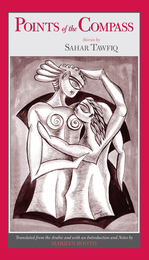
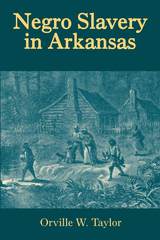
Long out of print and found only in rare-book stores, it is now available to a contemporary audience with this new paperback edition.
When slavery was abolished by the Emancipation Proclamation, there were slaves in every county of the state, and almost half the population was directly involved in slavery as either a slave, a slaveowner, or a member of an owner’s family. Orville Taylor traces the growth of slavery from John Law’s colony in the early eighteenth century through the French and Spanish colonial period, territorial and statehood days, to the beginning of the Civil War. He describes the various facets of the institution, including the slave trade, work and overseers, health and medical treatment, food, clothing, housing, marriage, discipline, and free blacks and manumission.
While drawing on unpublished material as appropriate, the book is, to a great extent, based on original, often previously unpublished, sources. Valuable to libraries, historians in several areas of concentration, and the general reader, it gives due recognition to the signficant place slavery occupied in the life and economy of antebellum Arkansas.

This revised and expanded edition of the Dictionary for Business & Finance defines terms from every field of business, as well as economics, statistics, and management and many words and expressions from other fields which have been adopted for special use by the business community. In this new edition, John V. Terry has added more than two hundred terms that help define the rapidly changing global economy of the late 1990s—terms like “European Currency Unit,” “Datsu-sara,” and “Keiretsu.” Of particular value to the student and business person alike are appendices for ratios, equations, formulas, abbreviations, and general financial and investment information.
In a clear, easy-to-follow style, Dictionary for Business & Finance goes directly to the business usage of a word or term, making it unnecessary to wade through irrelevant definitions.
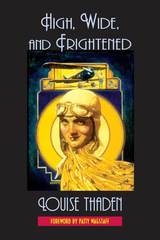
Louise Thaden wrote High, Wide, and Frightened in the prime of her life, making this autobiography unique among books about the Golden Age of Aviation. Thaden, a contemporary of pioneering women pilots Amelia Earhart, Ruth Elder, Florence Klingensmith, and Ruth Nichols, was part of a small group of determined women who overcame discrimination and obstacles to become pilots in a time when air races and distance, altitude and endurance records were daily news in America. She became the first woman to win the Bendix Transcontinental Air Race, the premier air race of the day and, before her, a male-dominated one.
High, Wide, and Frightened is the story of Thaden’s life, of her achievements in aviation, and also of her childhood in Arkansas. She writes about her everyday personal life and her day-today experiences in aviation.
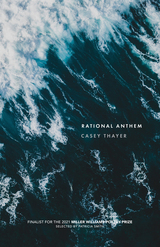
Finalist, 2022 Miller Williams Poetry Prize
In a voice at times electrified by caustic cynicism, at other times stripped bare by grief, Casey Thayer’s Rational Anthem offers wry tribute to “the greatest country God could craft with the mules he had / on hand.” In seeking to tell the story of the ragged world around him, Thayer examines the links among flag-waving populism, religious fervor, and toxic masculinity. Here male intimacy—among childhood friends, between father and son, and in the tenuous bonds between young adults—generally finds acceptance only when expressed through a shared passion for guns and hunting: “I helped my father clean his hands with field grass, / convinced we had shared a moment / in rolling the internal organs out of the abdomen.”
In “How-To,” the book’s closer—a mash-up of instructions from active-shooter trainings attended by the poet—Thayer grasps at strategies for surviving a world where we have come to see school shootings as routine: “Grab a textbook, they instructed my child, and hug it to your chest over your heart.”
Formally deft and lyrically dense, Rational Anthem asks why we find it so hard to change the stories we keep repeating.
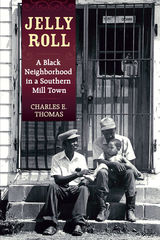
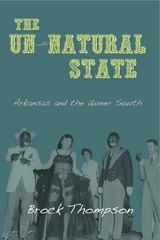
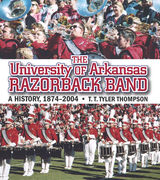
From the small Cadet Band that supported the school’s military department to the “best in sight and sound” Marching Razorbacks that are a staple of the university’s athletic program, the band has provided the soundtrack to the University of Arkansas.
The rich history of the Razorback Band has spanned almost the entire existence of the University of Arkansas. This book documents the distinguished 130-year history of the band from its humble beginnings in 1874 as an adjunct to the military cadet squad to the major college organization that it is today. Both as a supporting player of the military and ROTC programs and of the athletic department, the Razorback Band has provided the spirited musical excitement required through the years, as well as performing concerts on its own for an appreciative student body and community audience with the Concert Band and Wind Ensemble. Add to that the parallel story of the evolution of an exciting basketball and volleyball spirit band—the Hogwild Band—and you have in this lavishly illustrated book the first-ever history of the music makers of the University of Arkansas.

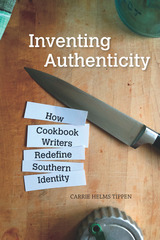
Tippen discusses the act of cooking as a way to perform—and therefore reinforce—the identity associated with a recipe, and the complexities inherent in attempts to portray the foodways of a region marked by a sometimes distasteful history. Inventing Authenticity meets this challenge head-on, delving into problems of cultural appropriation and representations of race, thorny questions about authorship, and more. The commonplace but deceptively complex southern cookbook can sustain our sense of where we come from and who we are—or who we think we are.
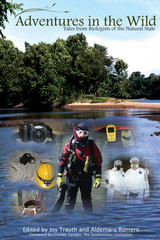


The world of William Trowbridge is one preoccupied with loss, with the fall from some possibility of grace that all who are born must bear. In the title poem of Trowbridge’s first full-length collection the poet calls our attention to movies, to Shane in particular. He asks us to identify, not with Shane, the lonely knight on a nameless quest, but with the much more lonely, and real, Jack Palance, the Prince of Darkness.
Trowbridge favors the villain, the outcast, the imperfect, the sinner, the alienated: King Kong, the Frog Prince, Frankenstein’s monster.

These poems are dark comedies that capture both the eerie and the ordinary. This balance is not easily achieved, but like a veteran comedian executing a pratfall, Trowbridge makes it all seem natural. His surreal family, the Glads, satirizes life in suburbia and reflects the often absurd margins of our urban lifestyle. By contrast, a group of poems revolving around a packing house in Kansas City (Trowbridge worked there as a young man), reminds us of those darker places in our lives that exist just “across the street from the ledgers and lapels.”
The variety of subjects Trowbridge works with is refreshing. Whether he is writing about Buster Keaton, Fred Astaire, June bugs, baseball, the holocaust, Cadillacs, or old dogs, his eye is always focused on the turn of phrase that will catch us off guard. His well-crafted lines are full of wit and humor. He approaches his subjects like Coyote approaches Fox—smiling, ready to expose his dear friend to the reality of his existence through sleight of hand. And, like Coyote, he teaches us to laugh at ourselves or perish under the weight of our everyday lives.

As Howard Nemerov has said in praise of William Trowbridge’s first poetry collection: “he is very much up on the peculiarities of our little world … He is both funny and serious, seriously funny; probably the best, if not the only, way of dealing with the complex predicament.”
Continuing in this third collection of poems to work in the realm of the serio-comic, Trowbridge explores other borderlands—between the tangible world and the intuitive one, between actuality and memory, between consciousness and unconsciousness, between self as flesh and blood and self as ghost.
This is fast-faced, nervy poetry whose witty, vernacular language moves surprisingly toward transcendence.

Originally published in a limited edition in 1866, this memoir of Will Tunnard’s experiences and observations of the Civil War in the West, where he served in the famed Third Louisiana Infantry, is one of only a handful of chronicles left by western Confederate soldiers. His first-person account of the battles of Wilson’s Creek, Pea Ridge, Iuka, and Corinth as well as the seige of Vicksburg, is a vivid history of these hard-fought campaigns which determined the outcome of the war in the Trans-Mississippi theater.
Using letters and diaries assembled from former comrades as well as his own daily journal, Tunnard tells the story of his regiment and its extraordinary odyssey from the Gulf of Mexico to the Ozark Plateau and from the Indian Territory to Mobile Bay. He offers an extensive and valuable account of capture and parole at Vicksburg and includes muster rolls which will interest genealogists as well as Civil War scholars and history enthusiasts. With a clear eye for detail and an engaging, objective style, Tunnard conveys the pathos of war and recounts the trials of camp life, social conditions, and the war’s affect on the civilian population.
Noted Civil War scholar William L. Shea supports the original text with background on the regiment and the time period, sketching a helpful chronology of events. In retelling this remarkable story of comradeship, hardship, endurance, courage, pride, and eventual defeat, Tunnard and Shea give modern readers a rare glimpse of the war in the West.

This anthology comprises reminiscences by a number of Anton Pavlovich Chekhov’s contemporaries, including the artist Konstantin Korovin, the writer Maxim Gorky, and Chekhov’s wife, Olga Knipper-Chekhova, and numerous letters written by Chekhov to his fellow writers and artists, family, publishers, and others.
Now available for the first time in English in America, these sixty-eight letters and ten essay-length reminiscences trace the development of Chekhov’s personality and talent, opening a window into the life and times of one of the world’s greatest short-story writers and playwrights. These perspectives on his family life and marriage, his early works, the stage productions of his plays, his literary successes, and the philosophies behind his writing create a rich biography of Chekhov that will reward writers, scholars, and all lovers of literature.

Because of the intense connection we feel with music, we can remember song lyrics even when we have forgotten the details of our personal lives—even when all else fails, a song can transport us back. In this sense, a song is capable of suspending time. Drawing on this perspective, Peter Twal’s playful, inventive, and wickedly sentimental debut collection takes a set of song lyrics (LCD Soundsystem’s “All My Friends”) and treats them as an artifact of memory itself, blurring the line between self and other, between past and present.
Each poem in Our Earliest Tattoos acts as a passageway from one lyric in the song to the next—the author pries these lyrics open like doors and builds whole rooms between them. As readers progress through the house he builds, they hear the song as the soundtrack to their discoveries: in one room, of party leftovers, and in another, an exploding museum of natural history.
Like memory, the characters in these poems are both present and absent. Sustained by smart phones, they are in constant communication despite always seeming to have just left the room. In one poem, the lonely Mars rover thumbs constantly through pictures on its phone; in another, Death trades in his scythe for a cell phone he uses throughout the book to send disquieting text messages. God, too, is text-happy—when the speaker asks, “Does the universe even care?” God texts back to say, “Don’t forget the twelve / bucks you owe me this year.”
Wise, funny, and wholly original, the long-lined sonnets that make up Our Earliest Tattoos celebrate the surreal, embracing the nature of memory as fragmented—as is visible in the fractured nature of the lines—and inherently bizarre.
READERS
Browse our collection.
PUBLISHERS
See BiblioVault's publisher services.
STUDENT SERVICES
Files for college accessibility offices.
UChicago Accessibility Resources
home | accessibility | search | about | contact us
BiblioVault ® 2001 - 2024
The University of Chicago Press









